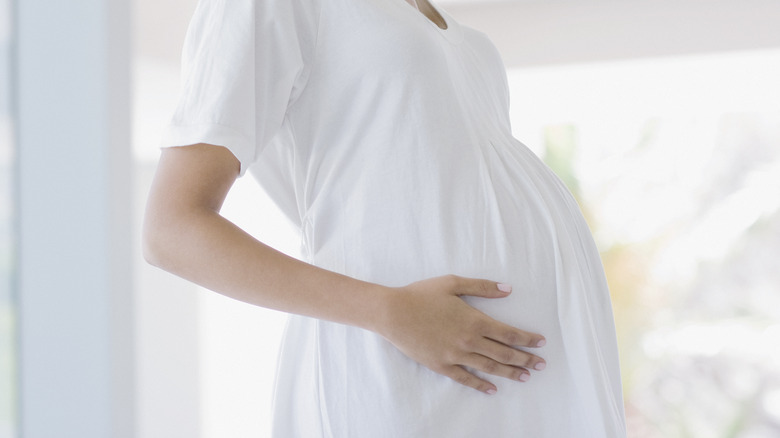How The Opioid Crisis Is Taking Its Toll On US Pregnancies
The fact that the United States is dealing with an opioid crisis is no secret. According to the U.S. Department of Health and Human Services (HHS), two out of every three overdose deaths in 2018 involved an opioid. In 2019, 9.7 million Americans misused prescription pain killers, and in 2016 one in three Medicare Part D participants received an opioid prescription. These statistics are harrowing.
The good news amidst this crisis is that awareness and treatment options are increasing. Thus far the HHS has dedicated $9 billion to help communities across the nation deal with this crisis. Currently, there are over 14,000 substance abuse facilities in the U.S., and 1.27 million Americans are currently receiving medication-assisted treatment to manage their dependence.
Now, however, researchers have discovered an alarming statistic regarding pregnancies and opioid drugs in the United States (via U.S. News). A federally funded study of 21,905 pregnant women in the U.S. known as the ECHO program (Environmental Influences on Child Health Outcomes) showed that 1 in 35 pregnancies in this country have been exposed to opioids.
How the data can help protect at-risk people
The ECHO program, which aimed at learning how early exposure to opioids is affecting the lives and health of babies and children, found that nearly 3% of American pregnancies were exposed to addictive opioid drugs (via U.S. News). The majority of the use of opioids during these pregnancies were of prescription drugs, not heroin or other illicit forms of opioids.
Ruby Nguyen, an associate professor at the University of Minnesota School of Public Health and head of the study, said of the findings, "Previous studies have not adequately described people in the U.S. who use opioids during pregnancy, a fact that has limited the efficacy of past public health interventions."
She went on to say, "As the first nationwide sample of pregnant people to describe their opioid use, the findings of this study can be useful in future efforts to reduce opioid use during pregnancy and limit the negative consequences of fetal exposure to opioids."
The data showed that the issue was most prevalent amongst white women and women who had a history of depression and multiple substance use. This information can help medical professionals to recognize higher risk patients sooner in order to intervene, thereby hopefully reducing the number of at-risk pregnant Americans and their babies. Nguyen explained, "to address the potential risks with pregnancy, policies to reduce general opioid availability, as well as programs focused on addressing prescription use for the management of both pain and opioid use disorder, should be further explored to target appropriate opioid use."

